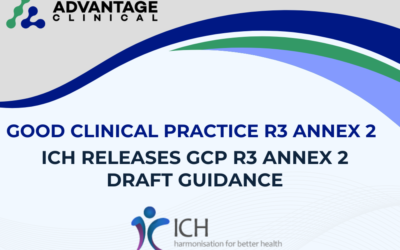The Patient Recruitment Specialist (PRS) is a fairly new and emerging role in the clinical research industry. Their role varies between trials and sponsors though their primary duty is to support clinical trial recruitment both globally and at the site level.
The role of Patient Recruitment Specialist is one which can be held in house at sponsors or contracted from select CROs or Patient Recruitment Providers.
Hover your cursor over the text in the below image to reveal extra content.
Patient Recruitment Specialist Role and Responsibilities
Starting early in the study development process, the patient recruitment specialist (PRS) will have an integral role in planning for successful recruitment. One task that is commonly delegated to the PRSis the development of the study Recruitment Plan. Often this is a document which is synthesized by an interdisciplinary team, though the PRS should take the lead in bringing these parties together. Having the PRS as an integral part of study planning and preparation is essential in building their familiarity with all aspects of the study.
One of the common responsibilities of the patient recruitment specialist is to analyze real time patient pre-screening and screening data. The process of collecting this data as well as it’s importance will be discussed in our next post. The patient recruitment specialist (PRS) will work with sites to ensure weekly or monthly collection of their screening metrics. This will allow the PRS to see, on a site by site basis, the patient population being encountered.
The patient recruitment specialist can leverage site level screening data to craft site specific, dynamic recruitment plans, and identify any gaps in process or training.
The major component of the patient recruitment specialist position involves periodic site visits to support enrollment at the site level. Beginning with the Site Initiation Visit, or occurring shortly thereafter, the PRS will visit each clinical trial site to develop a recruitment strategy and identify any areas requiring additional support.
Typically, the first visit with the patient recruitment specialist should be scheduled with the study coordinator and principal investigator. The PRS, being intimately familiar with the protocol, can guide the study staff through their screening and enrollment process. This can involve a review of local logistics and processes as well a short mock -screen / enrollment discussion. The PRS should also spend time helping the site identify their potential sources of patients, internal and external, and co-develop a strategy to tap into these reservoirs. Should the site require any recruitment support resources from the sponsor, the PRS can relay this information and liaise between the site andsponsor to provide any support.
The patient recruitment specialist should be in constant communication with the site, we suggest bi-weekly, to identify any further areas requiring support, re-training or education (i.e conducting an effective informed consent discussion). The data collected for local screening and pre-screening should be reviewed with the site during these communications to identify any missed patients, reasons for missing patients and potential sources for new patients.
Periodic, targeted, site visits by the PRS should continue for the duration of enrollment in your trial. Some sites may require more frequent visits due to ongoing recruitment difficulties, changes at the site etc. while others may be well on the road to success. It is important to continue communication with the successfully enrolling sites to gain insight into their success.
The patient recruitment specialist should effectively act as a library of knowledge for recruitment success and failures in your study. Having visited all your clinical sites, on an ongoing basis, the PRS can share tips, tricks and knowledge on how to successfully identify and enroll in the trial.
Who makes an effective patient recruitment specialist candidate?
- Clinical research experience
- Having a patient recruitment specialist who is familiar with the nuances and logistics of the clinical research industry will prove invaluable. The PRS should have a sound knowledge of the industry, GCP and local regulations. The PRS may be called upon to train new study coordinators at sites, train on informed consent process etc. Individuals with clinical research coordinator or clinical research associate experience are generally the best fit.
- Indication experienceCommunication and Public Speaking
- Beyond being intimately familiar with the protocol, your patient recruitment specialist should have a strong working knowledge of the patient population under study. This will help them navigate the different screening avenues as well as understand patient profiles and potential rational for enrollment / non-enrollment.
- Having experience working in the indication typically carries knowledge of the landscape of the setting in which the trial is being conducted (in patient hospital, outpatient hospital, clinic, academic medical centre). This will allow the PRS to better understand and leverage local process and procedures for study conduct.
- Comprehensive Study and Therapeutic Knowledge
- Soft Skills- “People person”.
Patient Recruitment Specialist Teams
For larger studies, one patient recruitment specialist may not be sufficient to support global enrollment. A simple extension of this role into a team is quite simple. One thing to keep in mind is to foster communication between PRS team members. This will allow knowledge sharing both for nuances of the role as well as recruitment tips and tricks from their designated sites.



